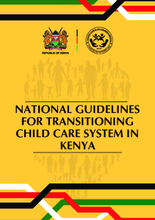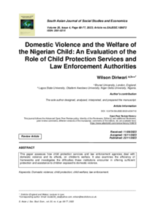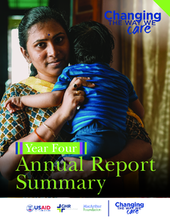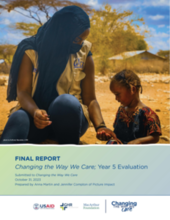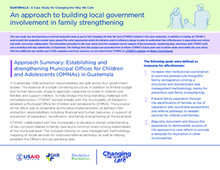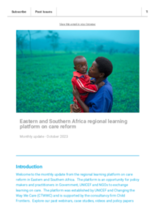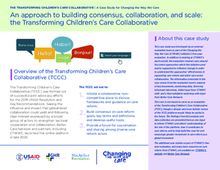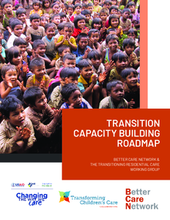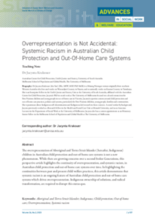Displaying 111 - 120 of 1028
These national guidelines provide a roadmap of activities to guide the state and non-state actors in Kenya to streamline the transitioning of care systems, children and institutions in the country.
This paper aims to contribute to an understanding of how Child Protection Services and Law Enforcement Agencies in Nigeria can combat domestic violence against children. It seeks to provide recommendations, on strengthening these entities as other important stakeholders involved in preventing detecting, responding to, and protecting children from domestic violence.
Changing the Way We Care (CTWWC) promotes safe, nurturing family care for children reintegrating from residential care facilities (often referred to as “orphanages”) and prevents child-family separation by strengthening families, reforming national systems of care for children, and working to shift donor and volunteer support away from residential care and toward family care alternatives.
The Final Report: Changing the Way We Care; Year 5 Evaluation highlights the Changing The Way We Care (CTWWC) initiative’s substantial contributions to advancing care reform globally and in demonstration countries—Guatemala, Kenya, and Moldova—through strengthened policies, systems, and stakeholder collaboration.
This case study, part of the five-year evaluation of the Changing the Way We Care (CTWWC) initiative, examines efforts in Guatemala to strengthen child and family protection through local government engagement.
This is the monthly update of the Eastern and Southern Africa Regional Learning Platform published in October 2023.
This case study, developed as part of the five-year evaluation of the Changing the Way We Care (CTWWC) initiative, examines one of five approaches used to advance care reform and collaboration within the care sector. Drawing on document analysis, interviews, and stakeholder input, it offers insights into the Transforming Children’s Care Collaborative’s role in promoting care reform and informing future investment in the global care movement.
This document outlines a capacity-building roadmap for scaling up the transition of residential care services. It is an interagency resource developed by Better Care Network and the Transitioning Residential Care Working Group (Transforming Children's Care Collaborative).
This article highlights the continuity of overrepresentation of Aboriginal and Torres Strait Islander children, and systemic racism, in the Australian child protection and out-of-home care systems over time.
The government of Kenya has been working with UNICEF, Changing the Way We Care, Charitable Children's Institutions and local CSOs to pilot care reform at the county level. Learning from these demonstration counties is being used to shape care reform in other counties and at the national level. This video explores care reform in one demonstration county, Kisumu.

